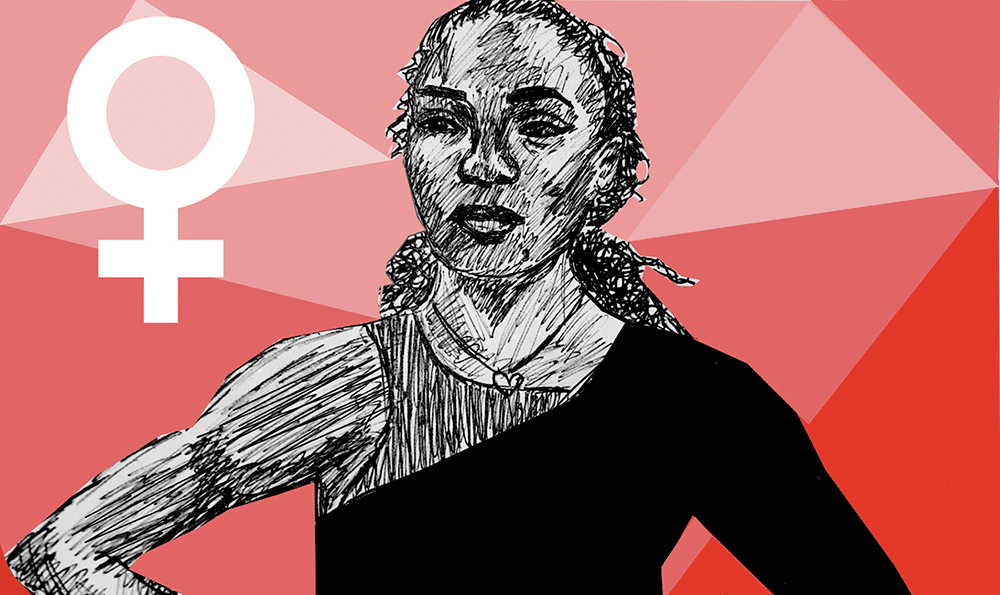Dear Serena Williams,
My name is Shai Goodman. I am one of the many athletes that you have inspired over your storied career. When I was a young girl, I spent hours mimicking your serve from the comfort of my living room; I want to be just like you. As I’ve grown up, a lot has changed for me. I left my home and moved to the other side of the country to play collegiate lacrosse. During my career, I’ve won games, scored goals, sat on the bench, lost games, gotten injured and recovered. Despite a career’s worth of ups and downs, one thing has stayed the same. Every time I step on the field, I have tried to embody the energy and charisma of my favorite athlete. That athlete is you.
I am writing this today to say thank you. Thank you for the courage, ferocity and vulnerability that you showed on the court at the U.S. Open Final. I think I can speak for female college athletes around the country when I say that seeing your “emotional meltdown” and your unapologetic response was not only empowering, but it was absolutely the example that we need to see more of. When Carlos Ramos, the umpire for the match, accused you of cheating and then went on to penalize you for smashing your racket, you did what any athlete would do: you got fired up.
You displayed honest, raw emotion — which female athletes rarely do. Female athletes, like all women, are taught to be submissive and humble and are penalized for taking up space. Female athletes constantly face verbal lashings and fines when they push the traditional boundaries set for them. For example, female golfers may be fined up to $1,000 for wearing leggings, and Women’s National Basketball Association (WNBA) players have been issued $500 in fines for wearing Black Lives Matter shirts (a decision that was only rescinded after nationwide backlash). You, Serena, accumulated $17,000 in fines for your behavior during the U.S. Open Final, but instead of conceding to the submissive standards that female athletes are conditioned to live up to, you shattered them.
There are people who believe that your behavior at the U.S. Open Final was out of line. They said that you threw a “tantrum” and that you acted like a “sore loser.” They drew racist cartoons, attacked your character and questioned your motives for approaching the referee. Those people don’t get it. They completely looked past the historicity of your career and how your anger did not stem from one bad call, but from years of being systematically targeted for being a black woman in tennis. You’ve stepped up against inequality and racism time and time again. You’ve advocated for equal pay for women, especially black women, you’ve shed light on the inequalities that black women experience in our healthcare system and you’ve demanded that men step up and advocate for pay equality. Your behavior at the Grand Slam Final wasn’t out of line; it was crucial.
Sept. 8, we saw something that female athletes rarely do — break down. Sports are emotional. They are exhausting and painful and heartbreaking. Fans rally behind emotional athletes like Andy Roddick, Marshawn Lynch, Allen Iverson and John McEnroe because they can experience these feelings alongside the players. These athletes play with a watchable passion, one built for entertainment. Despite our love of emotional male athletes, we don’t support women when they get heated and angry during a competition. If we want the tenacity and emotional ferocity that comes with sports, we shouldn’t penalize women for it.
More female athletes need to engage in the kind of behavior that you displayed at the U.S. Open Final. More celebrating, more anger, less composure; we need to see female athletes displaying emotional behavior more often. We need exhilarating, gut-wrenching moments, like Brandi Chastain ripping her shirt off in the 1999 World Cup, and Diana Taurasi clapping in the face of a Connecticut Sun player. If we want people to pay more attention to women’s sports (which they absolutely should), then let’s make enough noise that their ears ring.
Serena, you took up space on the court, called out problematic behavior and didn’t stifle your voice in the presence of a man. Watching you stand up to that referee is exactly what I wish I had the courage to do throughout my career. Because of you, Serena, I will enter my final year of college lacrosse with a fire and fervor that I have never allowed myself to play with. All my life, I have been taught to be composed; to not celebrate when I score, put emotions to the side, and to kindly accept whatever the referee’s calls may be. Not this year; this year I vow to make more noise. I won’t hold back tears any longer. It’s time I let them fall.
All my love,
Shai
![]()




































